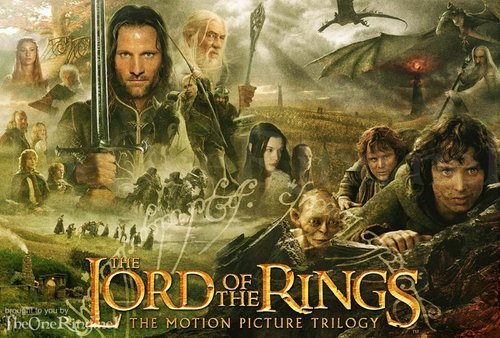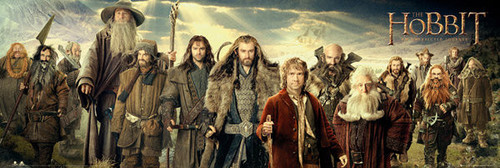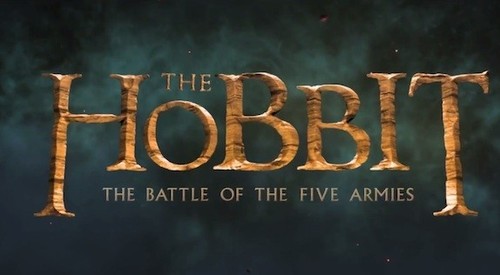#movie franchise
I wrote a couple of weeks ago about movie franchises and how they can be awesome if done right or terrible if done wrong. Today I want to expand on that theme and talk about some other trends that studios have been using to try to cash in.

The first trend is the reboot, which has a spotty track record. There are some franchises that have been rebooted with much success and critical acclaim. The ones that jump immediately to mind are The Dark Knight trilogy reboot of the Batman franchise and the J.J. Abrams Star Trek movies. Both of these reboots took well known and well traveled characters and storylines and breathed new life into them which led to commercial and critical success. However, there are plenty of reboots that fail to achieve the success of their predecessors, both at the box office and from the critics.

Things get even more insane when franchises get rebooted multiple times. The Spiderman franchise had some success with Tobey Maguire as Peter Parker and then the reboot did pretty well with Andrew Garfield. Now there are rumors that Spiderman will be rebooted yet again with another new star. James Bond has been re-cast so many times I’ve lost count and, other than the recent Daniel Craig movies, it hasn’t been a boost to the quality or success of the franchise. Hollywood will try to squeeze blood out of a stone and every last dollar out of a potentially lucrative franchise.

The second trend in Hollywood is the remake, which is slightly different than the reboot. A remake is when a well-known film is copied as the framework for another film but many of the settings, characters, and plot points are changed or updated. A recent example of this is the remake of the 1982 classic musical movie Annie, which was (quite unnecessarily) remade in 2014 with a new plot, new characters, and several new songs.

Remakes can sometimes be great. Ocean’s Eleven is a remake of a “rat pack” film from the 60’s and it’s one that I enjoy considerably. The Coen Brothers remake of True Grit is another that I thought was well done and added a new dimension to the John Wayne starring original. But the remakes that match or exceed the original films they are based on are rare, and too often they lose what made the original films so special and loved.

The last trend I’m going to talk about today, and the one that I really can’t stand, is the trend towards increasingly absurd adaptations. It’s not uncommon for TV shows to be adapted to films, and sometimes with a lot of success. Batman was a television show first. 21 Jump Street was a television show first. There would have been no Serenity without the television show Firefly. And of course the wonderful films of the Monty Python comedy troupe would not have been possible without the television success of Monty Python’s Flying Circus. There have been plenty of duds too, but it’s not the worst thing that Hollywood has done.

But the trend is spiraling downward recently with more and more absurd adaptations. Disney turned a relatively popular theme park attraction into the Pirates of the Caribbean franchise, which is sadly still continuing long past it’s expiration date. Video games have been adapted into several films, none of which were as good or as popular as the games they were based on. In recent years, sanity has been stretched to the point where board games like Battleship, Monopoly, Candy Land, and the Ouija Board have been adapted into films or are at some point in the development process. I’m just waiting on movie studios to adapt crappy television commercials or cell phone games into movies. It’s going to happen.
It’s hard to generalize and say that reboots, remakes, and adaptations are a good thing or a bad thing. When done with care and craft they can be great to watch and successful financially. However, as I said in part one of my thoughts on movie franchises, I think that the lack of creativity and over-reliance on proven commodities is one of the reasons that people aren’t going to the movies as often. Plus there is more competition for our time and money with the increased quality of television and online entertainment. Angela will have more thoughts on that in the next few days.
One of my friends commented that there seems to be a wealth of huge blockbuster franchises and an explosion of low budget independent films but the “middle class” movies are getting squeezed out. I don’t have exact figures, but my initial reaction is that he’s on to something. I know studio executives want to try to minimize risk and maximize profits by creating films that can be cross-marketed and have a wealth of merchandising opportunities, but the primary reason for making a movie should be because it’s a good movie. When movie studios figure that out, maybe they will see the business grow.
While there are still some studios that focus on making quality stand alone films, the obsession in Hollywood in recent decades has been building successful and insanely profitable movie franchises. However, finding or building the next great movie franchise has reached a peak in the last few years and it’s what many studios seem to prioritize when it comes to deciding what movies get made.
Sometimes it works out and they have a huge new franchise that makes the studio millions for years to come. Sometimes it fails miserably and the studio loses a ton of money and is stuck with the rights to a series that they can’t do anything with.

Franchises have become the driving force in a lot of major movie studios, but it’s not a new phenomenon. James Bond, Rocky, Star Wars, Star Trek, Indiana Jones, Superman, Planet of the Apes, and a host of horror movie franchises all started more than 30 years ago and almost all of them are great. Movie studios used to take great movies and use their success and popularity to turn them into franchises. Now the studios are trying to manufacture a franchise before the first film has even been released.

When everything works out, it’s great and we as the viewer get to enjoy a great series like Harry Potter or The Hunger Games. But for every hit there is at least one franchise that never seems to get off the ground or drag on too long with stories that amount to “we’ll do the same thing we did in the last movie but in a different place.”

What got me thinking about this was the most recent film in the Hobbit series unimaginatively titled “The Hobbit: The Battle of the Five Armies.” (Spoiler alert: there are five armies in it.) I am a huge Lord of the Rings fan, both of the books and the movies, and I was excited to hear that first Guillermo Del Toro and then Peter Jackson were attached to direct.

The Hobbit is a relatively short book and I thought it was going to be interesting when they announced that the film was going to be split into two movies. Then after they were well into production it was announced that the story would be split into three movies and additional material not in the book would be added to “enhance” the story.

I enjoyed the first two Hobbit movies, although they were not as good as the Lord of the Rings films. In fairness, that’s a very high bar to reach so it’s understandable. The Hobbit: Battle of the Five Armies was pretty good and entertaining, but there is very little story to go along with a lot of action. Instead of making two really good films, they decided to stretch the story into three pretty average films just because people like me were pretty much guaranteed to show up and buy tickets for anything they put out.

My point in writing all of this is not to decry the idea of franchises, but rather to express a hope that they will get better. As I said earlier, the way franchises should be built is by focusing on making great movies and then capitalizing when those movies are successful. With movie ticket sales at their lowest level since 1995 and a plethora of other options for entertainment, it may be time for studios to start focusing on the quality of their individual films rather than the potential to turn one film into a dozen.
If the movies get better, people will go to see them and the studios will be successful financially. That’s a win/win situation for moviegoers and filmmakers. Hopefully the lessons of recent years will encourage Hollywood to focus on quality and not double down on trying to squeeze even more dollars out of a few more Transformers or Fast and Furious sequels. Time will tell.
-Phil


